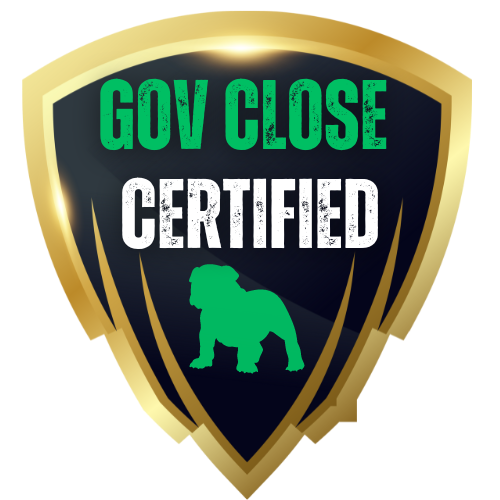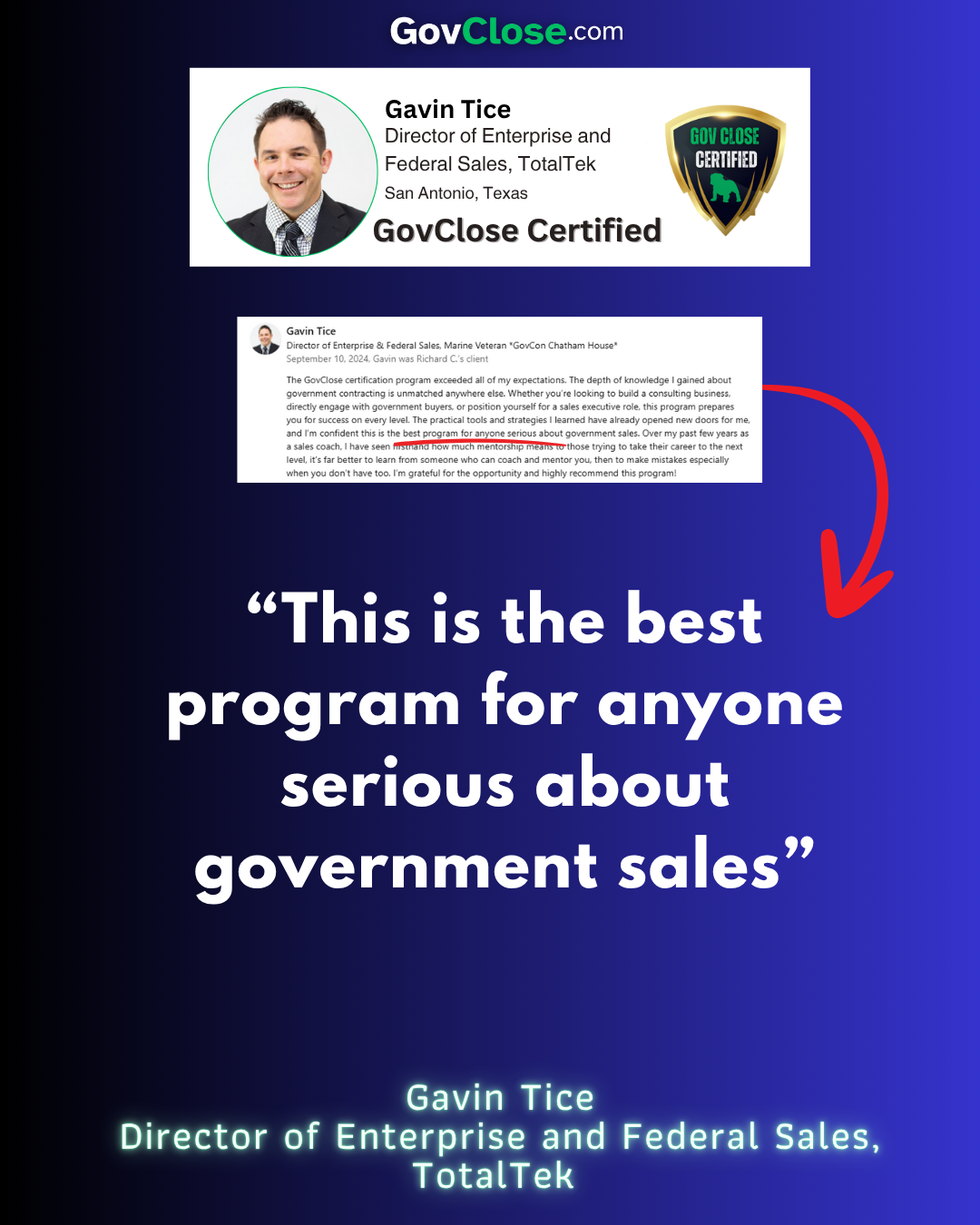Why You're Not Able To Sell To The US Government
Jul 16, 2025In the GovClose Certification Program, we teach students how to master the government contracting process—and turn that skill into serious income. Whether your goal is to start a consulting business that earns up to $400K a year advising clients, or land a high-paying role as a federal sales executive, we give you the tools and training to make it happen.
Join me, Rick Howard (Lt. Col., Ret.), as I guide you through what small business government contracts are, how to find them, and—most importantly—how to win. We cover everything from certifications and set-asides to targeting the right agencies, analyzing market data, and building a strong pipeline.
What Are Small Business Government Contracts?
If you're new to this space, here's what you need to know: the U.S. government is the largest purchaser in the world, buying everything from IT services and construction to cleaning supplies and landscaping. Government contracting isn't just for massive defense companies—there are opportunities across nearly every industry.
The federal government sets annual goals for how much it will spend with small businesses. These goals are enforced through the Small Business Administration (SBA), and spending is tracked through categories like:
-
NAICS Codes (industry classification)
-
PSC Codes (what the government is buying)
-
And size standards that define what qualifies as a “small” business
Understanding Set-Asides and Certifications
One of the most important concepts in small business contracting is the set-aside—a contract reserved for certain types of businesses. There are specific contracts for:
-
Women-Owned Small Businesses (WOSB)
-
Service-Disabled Veteran-Owned Small Businesses (SDVOSB)
-
HUBZone businesses
-
8(a) certified firms
-
And general small businesses under defined revenue/employee thresholds
These set-asides are meant to level the playing field. But while they offer big opportunities, they don’t guarantee a win. Contracts still require competitive bids, strong proposals, and relationships with government buyers. The process can take 6 to 18 months or more—and you need a strategy to stay ahead.
The Untapped Opportunity
Here’s the kicker: fewer than 0.1% of U.S. small businesses sell to the federal government. That means millions of companies are leaving billions on the table.
In FY24 alone, the federal government awarded $183 billion in contracts to small businesses—roughly 28% of all contracting dollars. And that number continues to grow.
So why aren’t more small businesses competing for these contracts? Simple: the process is complex, and few know how to navigate it. That’s where programs like GovClose come in.
Finding the Right Opportunities
Rick walks through how to use tools like USAspending.gov and SAM.gov to identify where the money is going, and which agencies buy what you sell. You’ll learn how to:
-
Analyze spending by NAICS code and agency
-
Spot trends in your industry
-
Understand who your competitors are
-
And see which agencies favor certain certifications (for example, the VA heavily prefers SDVOSB-certified firms)
This type of research allows you to build a focused, strategic plan rather than chasing every opportunity that pops up.
Don’t Skip the “Sources Sought” Phase
One of the most overlooked steps in the contracting process is the pre-solicitation phase, known as “sources sought.” This is where agencies post market research notices to gather information before writing a contract.
Engaging at this stage gives you a major advantage.
It allows you to:
-
Influence how the contract is written
-
Introduce your capabilities early
-
Build relationships with contracting officers before the competition even knows an opportunity exists
Skipping this phase—and only responding once the RFP is live—is a rookie mistake.
GovClose: A Full-Year Implementation Program
Success in government contracting doesn’t come from submitting a few proposals and hoping for the best. It requires consistent pipeline building, targeted outreach, and mastering the rules of the game.
The GovClose Certification Program is a one-year training and implementation program that teaches individuals and small businesses how to:
-
Read government spending data
-
Find the right opportunities
-
Build proposals that win
-
And grow a predictable, profitable government sales pipeline
We even show you how to register on SAM.gov (for free—no middlemen required) and give you the CRM tools, support, and community you need to follow through.
Breaking into government contracting isn’t easy—but it is absolutely worth it. With the right training, tools, and strategy, small businesses and consultants can tap into a massive, consistent market that’s more open than ever before.
Rick Howard’s in-depth guidance offers a clear roadmap for how to get started, avoid common pitfalls, and position yourself for long-term success. Whether you’re looking to build a consulting business, grow your small firm, or pivot into a government sales career, the knowledge you gain through GovClose can help you take that next step—with confidence and clarity.
➡️ Ready to start or scale your government contracting business? Visit GovClose.com to learn more.
Follow Rick on LinkedIn Richard C. Howard, Lt Col (Ret) for more government contracting updates.
Turn Government Contracting Knowledge Into Income
This isn’t a course. It’s a certification and implementation system to help you build a consulting business, land a high-paying sales role, or scale your own company in federal contracting.
We hate SPAM. We will never sell your information, for any reason.


